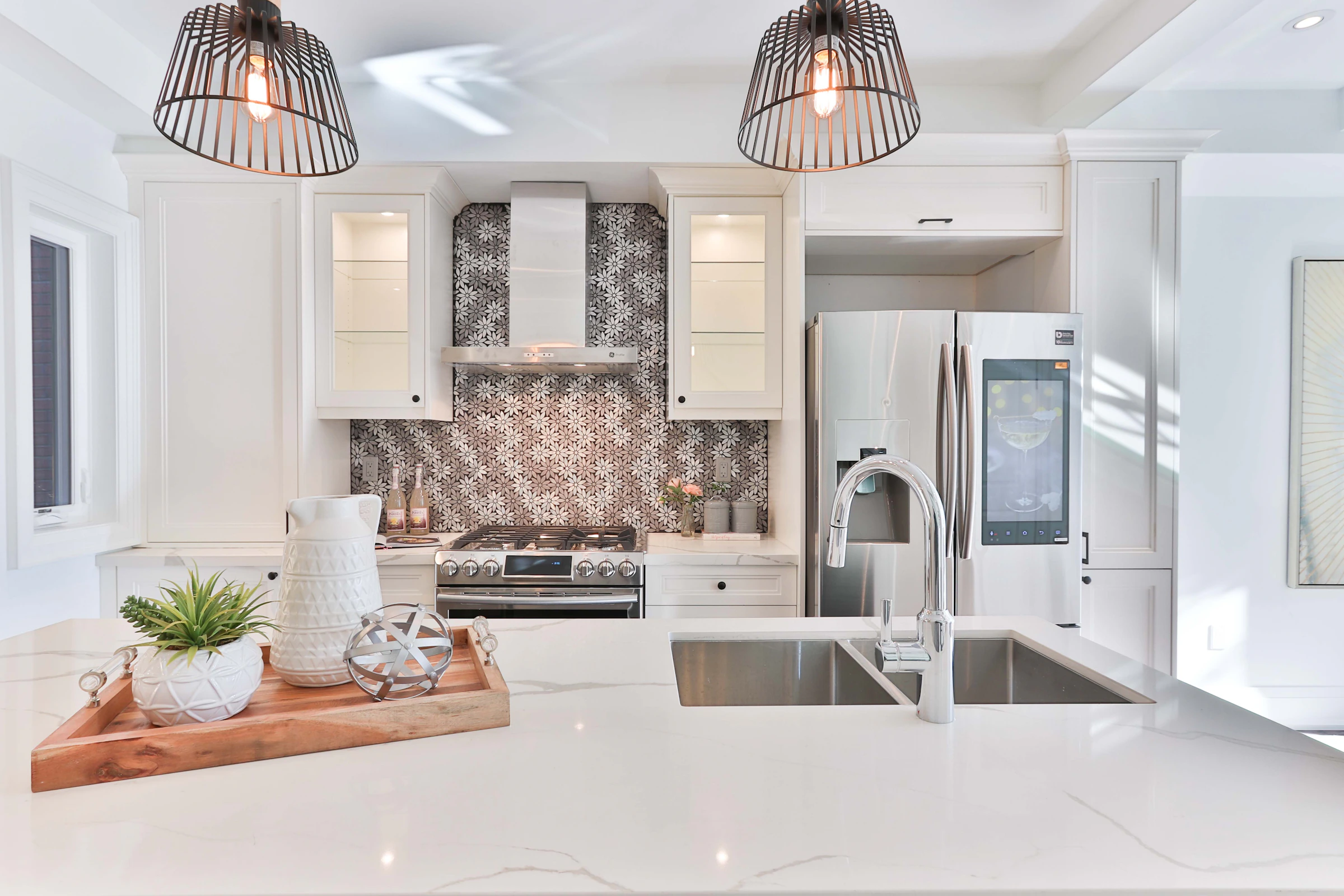Is Epoxy Flooring Good for Kitchens
19 July 2025
Is Epoxy Flooring Good for Kitchens
When designing or renovating a kitchen, flooring is a crucial element that directly affects both aesthetics and functionality.
From the constant foot traffic to spills, heat, and dropped utensils, a kitchen floor must be resilient, safe, and easy to maintain. One increasingly popular option for both residential and commercial kitchens is epoxy flooring.
In this article, we'll explore the pros and cons of epoxy kitchen floors, compare them with other materials, and provide insights to help you decide if it's the right choice for your space.
1. What Is Epoxy Flooring
Epoxy flooring is a type of surface coating that is created by mixing a resin and a hardener. This combination chemically reacts to form a hardresin material that is both strong and durable. It’s typically applied over concrete floors and is known for creating a seamless, glossy finish that’s resistant to wear and tear.
Originally used in industrial settings such as warehouses and factories for its durability, epoxy flooring has found its way into homes due to its appealing aesthetic and practical benefits.
2. Benefits of Epoxy Flooring in Kitchens
A. Durability
One of the biggest advantages of epoxy flooring is its strength. Kitchens are high-traffic areas prone to heavy use. Epoxy can withstand:
- Frequent foot traffic
- Heat and steam
- Dropped pots, pans, and utensils
- Abrasions from furniture and appliances
This makes it ideal not just for residential kitchens, but also for commercial or industrial food prep areas.
B. Chemical and Stain Resistance
Kitchens are full of ingredients that can easily stain—wine, tomato sauce, oil, vinegar, and more. Epoxy floors are non-porous, meaning they don’t absorb spills. With proper cleaning, they resist:
- Food stains
- Acidic substances
- Harsh cleaning agents
This resistance adds to the longevity of the floor while preserving its visual appeal.
C. Easy Maintenance
Cleaning epoxy flooring is straightforward. A quick sweep and mop are often all that’s needed to keep it spotless. Unlike grout in tiles that can harbor grime and bacteria, the seamless surface of epoxy minimizes dirt buildup.
In a kitchen where hygiene is paramount, this ease of maintenance is a major plus.
D. Aesthetics and Customization
Epoxy floors can be customized in many ways:
- Glossy or matte finishes
- Color options to match any décor
- Decorative flakes or metallic pigments for a modern look
For those looking to make a design statement, epoxy offers far more flexibility than traditional ceramic tiles or laminate flooring.
E. Seamless Surface
Unlike tile or wood, epoxy flooring is completely seamless. This means:
- No gaps or joints where food, dirt, or bacteria can hide
- Easier cleaning and better hygiene
- A sleek, modern appearance
This quality is particularly beneficial in large or open-concept kitchens.
F. Moisture and Water Resistance
Moisture can wreak havoc on many types of kitchen flooring, especially wood and laminate. Epoxy, being a moisture-resistant coating, protects the underlying concrete from water damage. This is particularly important in kitchens with frequent spills or homes located in humid climates.
3. Potential Drawbacks of Epoxy Flooring in Kitchens
While epoxy offers many advantages, it’s not without its challenges. Understanding these can help you decide if it’s right for your kitchen.
A. May be slippey when when
The glossy finish of epoxy can become slippery when wet—especially a concern in kitchens where spills are frequent. However, this can be mitigated with:
- Anti-slip additives in the top coat
- Textured finishes
- Rubber mats or rugs in high-risk areas
B. Installation Time
Installing epoxy flooring takes 3 to 4 days. The process involves:
- Floor preparation (cleaning, repairing cracks, degreasing)
- Applying primer and multiple layers
- Curing time of several days
Additionally, the installation process can emit strong fumes, especially in enclosed areas. Proper ventilation and professional installation are recommended.
C. Cool and Hard Underfoot
Epoxy floors are hard and do not provide cushioning underfoot.
In residential kitchens where people stand for extended periods, this may feel uncomfortable. Area rugs or anti-fatigue mats can help.
Also, epoxy can feel cooling. If you live in a colder climate, consider pairing it with radiant floor heating.
4. Is Epoxy Flooring Right for Your Kitchen?
Ideal Scenarios for Epoxy:
- Commercial kitchens that require durability and hygiene
- Modern, industrial-style homes looking for a seamless design
- Open-plan spaces where flooring continuity is preferred
- Homes with pets (easy to clean up after accidents or food spills)
Not Ideal If:
- You prefer a soft or natural material like wood
- You frequently stand in the kitchen and need a more cushioned surface
You're looking for a DIY install or quick renovation project.
5. Tips for Choosing and Installing Epoxy in Your Kitchen
A. Hire a Professional Installer
Epoxy can be tricky to install correctly. For kitchens, where moisture and foot traffic are constant, a flawless application is key.
B. Opt for a Slip-Resistant Finish
Ask about adding anti-slip agents or choosing a textured top coat.
C. Plan for Downtime
The curing process can take several days. Plan accordingly to minimize disruption to your household.
D. Keep Up with Maintenance
While epoxy is low-maintenance, sweeping regularly and using a pH-neutral cleaner will keep it looking new.
Conclusion
Epoxy flooring can be an excellent choice for kitchens, especially where durability, hygiene, and modern style are priorities. It's not the best fit for everyone, particularly those who prefer softer, warmer surfaces underfoot, but its many advantages make it worth serious consideration.
Whether you're renovating your home or designing a new commercial kitchen, epoxy offers a strong, sleek, and sanitary flooring option that stands the test of time.
At Alpine Flooring Solutions, we specialize in professional epoxy floor installations that are tailored to your specific needs and preferences. Contact us today to schedule your consultation and learn more about how epoxy flooring can enhance your space! We offer complimentary on-site consultations, where our experts assess your flooring needs and provide samples, suggestions, and a no-obligation quote.
Alpine Flooring Solutions
Whatsapp or Call: +65 80684605
Instagram/Tiktok: @alpineflooring.sg

